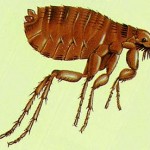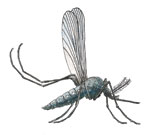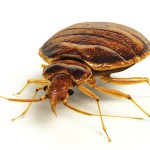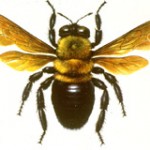READY TO GET STARTED?
REQUEST A FREE ESTIMATE
Fill out the form below or call (888) 466-7849 for a free, no-obligation estimate.
You’ve heard the news about the large numbers of ticks that have decided to come out earlier in the season than usual. But if you are like me you thought “Well that sure stinks that it’s happening to other people but I’m sure it won’t happen to me”. WRONG!! Actually, the day Dr. Goo’s Corner: Ticks was posted I came home and found a tick on my beloved boxer! It’s a good thing I had read that blog post because I knew I had to get that tick off of my dog immediately.
It’s important that ticks are removed quickly and correctly. To be sure that you know how to properly remove a tick from yourself or your dog, we’ve provided instructions.
How to properly remove a tick:
Ticks in Atlanta and surrounding areas are on the rise this season because of our warm winter. Trust Northwest to protect your home, family, and pets from ticks.
Have you experienced ticks this season?
 It is a common misconception that if you don’t have animals in your home that you can’t get fleas…FALSE. Fleas can be an issue in homes both with and without pets. They often attach themselves to rabbits, skunks, possums, and other rodents or wildlife that can be found living in wooded areas around a structure. Their 6”-8” vertical jump gives them the ability to attach themselves to humans and animals.
It is a common misconception that if you don’t have animals in your home that you can’t get fleas…FALSE. Fleas can be an issue in homes both with and without pets. They often attach themselves to rabbits, skunks, possums, and other rodents or wildlife that can be found living in wooded areas around a structure. Their 6”-8” vertical jump gives them the ability to attach themselves to humans and animals.
The thought of fleas creates a sense of uneasiness…and with good reason; fleas can carry several diseases like plague, tapeworm, and murine typhus that effects humans and pets alike. Flea prevention is much easier and less expensive than flea treatment.
Flea Prevention Tips:
Do it yourself flea treatments can be effective. However, we would like to warn you that flea exterminating is a difficult task and more often than not should be done by a professional exterminating company like Northwest Exterminating. When getting rid of fleas yourself, keep in mind that fleas can lay up to 50 eggs per day. Only 5% of the flea population is on your dog or other household pets, the rest have fallen off in and around your home.
DIY Flea Treatments:
Disclaimer: Northwest Exterminating does not encourage the use of the following treatments. We strongly recommend that all instructions are carefully followed on packaging of the following products and hold no liability for the following DIY treatments. Please contact a doctor, veterinarian and a professional pest control company before trying any of these treatments.
If you have tried DIY flea control methods without any luck, a pest control professional is your best option. A good exterminating company will be knowledgeable about flea prevention and treatment and should treat your home until fleas are gone.
If you’re looking for flea control in the Atlanta, Savannah, Nashville, or Columbus areas Northwest Exterminating is your best choice. Visit us at callnorthwest.com or call at 888.466.7849
Have you tried any of these DIY flea treatments?
Additional links:
https://www.callnorthwest.com/2011/08/facts-about-ticks-and-fleas/
https://www.callnorthwest.com/2011/06/dog-fleas/
Watch out pests, it’s National Pest Control Awareness Month and the Georgia Department of Agriculture (GDA) Commissioner Gary W. Black is reminding Georgia residents to protect your homes and businesses from pests. Read the GDA’s recent press release for more tips and information on how to keep your home free from pests.
State Ag Commissioner reminds residents to protect homes, businesses
Spring has sprung in Georgia. This season is always a busy time for insects and pests in Georgia, but it is especially the case after such a mild winter. In honor of National Pest Control Awareness Month in April, Georgia Department of Agriculture (GDA) Commissioner Gary W. Black reminds residents about the risks posed by household pests.
“We are already seeing more insects and pests earlier this year due to the warm winter Georgia has had,” said Commissioner Black. “Every year, pests cause millions of dollars in damage for our residents and it is important for Georgians to prepare a plan of action to help prevent damage from occurring.”
In addition to fees paid for control and preventative services done by pest control professionals, Georgia residents spend untold dollars to repair damage caused by pests such as termites, rodents and carpenter ants who chew through walls, flooring and even electrical wiring. Residents also pay for expenses related to the treatment of medical conditions; mosquitoes can carry West Nile virus while house dust mites and cockroach allergens trigger asthma attacks, and stinging insects send more than half a million people to the emergency room every year.
“I encourage all Georgians to take proactive steps to prevent infestations in their homes and businesses,” said Commissioner Black. “All it takes is a few simple, preventative measures to help protect year-round.”
In April, consider these tips and suggestions:
– Trim back trees and shrubs so they are not physically touching any building structures;
– Walk the perimeter of a structure’s foundation and seal up any cracks or small openings;
– Install window and/or door screens and check once a year for holes or tears;
– Keep wood debris and piles of wood (including firewood) at a distance;
– Check plumbing and pipes to eliminate sources of moisture or standing water;
– Tightly secure all food and garbage to prevent pests from finding their way to the source (this includes pet food dishes and storage containers); and
– If there are any visible signs of pests or an infestation, contact a licensed pest professional immediately.
“April is a great time to have your home or business checked to determine if it’s necessary to re-establish any pest control measures, such as termite protection” said Commissioner Black. “And if control or treatment is necessary, that is one homeowner project best left to the professionals.”
Consumers are urged to only seek advice and use licensed professional pest control companies. If a company is not licensed by the GDA, it is illegal for them to practice pest control protection as a business. Residents can find a list of all licensed professional pest management companies at www.kellysolutions.com/GA/Structural/searchPCOCo.asp, or contact the GDA Structural Pest Section at 404-656-3641.
Note: Consumers can learn more about Pest Control Awareness Month, the GDA’s Structural Pest Section and hear from industry partners in a short video clip available on the Department’s website homepage starting April 1: www.agr.georgia.gov.
The Georgia Department of Agriculture is responsible for licensing the professional pest management companies who perform termite control. There are approximately 1,200 of these companies operating in Georgia. Learn more online at www.agr.georgia.gov.
Spring is here and so are the pests. We’ve talked a lot about the unusually warm weather leading to higher numbers of pest sightings and our Ask the Mouse section on our website has been a great place for readers to ask questions about pests they are seeing. Mosquitoes, bed bugs, and carpenter bees are among some of the common household pests that are being seen this spring. Take a look below at some of our most common recent questions.
Why do mosquitoes bite some people more than others?
 Mosquitoes are attracted to carbon dioxide and can sense it from up to 30 yards away. Researchers are still trying to find out exactly what it is that makes some people more attractive than others. Research has indicated that the amount of carbon dioxide in the breath, pregnancy, body temperature, alcohol and odorant markers based on blood type are the top attractants. Pregnant women are preferable because they exhale more carbon dioxide and tend to run a little warmer than the average person. It is also thought that alcohol increases body heat making a person more appealing. So be careful who you hang around at the next cook out.
Mosquitoes are attracted to carbon dioxide and can sense it from up to 30 yards away. Researchers are still trying to find out exactly what it is that makes some people more attractive than others. Research has indicated that the amount of carbon dioxide in the breath, pregnancy, body temperature, alcohol and odorant markers based on blood type are the top attractants. Pregnant women are preferable because they exhale more carbon dioxide and tend to run a little warmer than the average person. It is also thought that alcohol increases body heat making a person more appealing. So be careful who you hang around at the next cook out.
My son’s coming home from college. What do I need to do to make sure he doesn’t bring home bed bugs?
 Bed bugs are evasive and hard to detect. When your son brings home his clothes, make sure to leave them outside, in a detached building or in the garage. Immediately place the dirty clothes in the washing machine and dry them on high for at least 10 minutes. It is best to keep the luggage out of the house if possible. If you don’t have that option you can place the luggage in black plastic bags and leave them outside in the sun on a hot day. You can also do this with furniture. Bed bugs won’t tolerate temperatures greater than 120 degrees. Since bed bugs are tiny and can get into the smallest cracks, it is best to have a professional to inspect furniture and other items before you bring them into your house.
Bed bugs are evasive and hard to detect. When your son brings home his clothes, make sure to leave them outside, in a detached building or in the garage. Immediately place the dirty clothes in the washing machine and dry them on high for at least 10 minutes. It is best to keep the luggage out of the house if possible. If you don’t have that option you can place the luggage in black plastic bags and leave them outside in the sun on a hot day. You can also do this with furniture. Bed bugs won’t tolerate temperatures greater than 120 degrees. Since bed bugs are tiny and can get into the smallest cracks, it is best to have a professional to inspect furniture and other items before you bring them into your house.
I found sawdust on my back porch. Does that mean I have termites?
 Termites eat the cellulose part of the wood and don’t leave behind sawdust. Chances are you have a different pest, one of the most common is the carpenter bees. Carpenter bees get their name because they excavate clean round entrance holes, close to ½ inch wide, into soft wood such as pine, cedar, cypress and fir. The prefer to attack structural timbers and other wood products such as fascia boards, porch ceilings, decks, railings, siding, shutters, firewood, and other weathered wood. They tend to avoid wood that is well painted or covered in bark. They do not eat the wood therefore they leave behind the sawdust. They bore into wood to make galleries for nesting. If left untreated, they can cause extensive damage.
Termites eat the cellulose part of the wood and don’t leave behind sawdust. Chances are you have a different pest, one of the most common is the carpenter bees. Carpenter bees get their name because they excavate clean round entrance holes, close to ½ inch wide, into soft wood such as pine, cedar, cypress and fir. The prefer to attack structural timbers and other wood products such as fascia boards, porch ceilings, decks, railings, siding, shutters, firewood, and other weathered wood. They tend to avoid wood that is well painted or covered in bark. They do not eat the wood therefore they leave behind the sawdust. They bore into wood to make galleries for nesting. If left untreated, they can cause extensive damage.
What other questions do you have for Northwest Exterminating’s Ask The Mouse section?
Have you seen mosquitoes, bed bugs, carpenter bees, or other pests in or around your home?